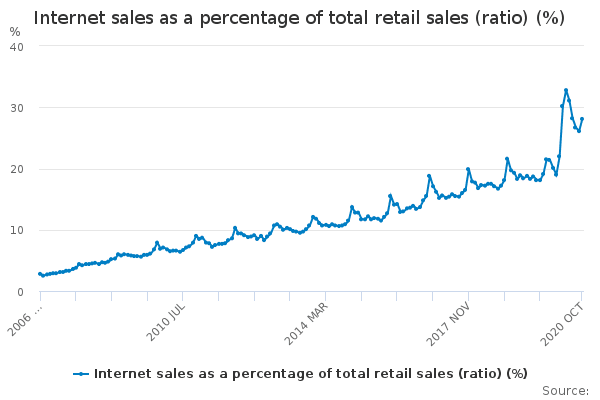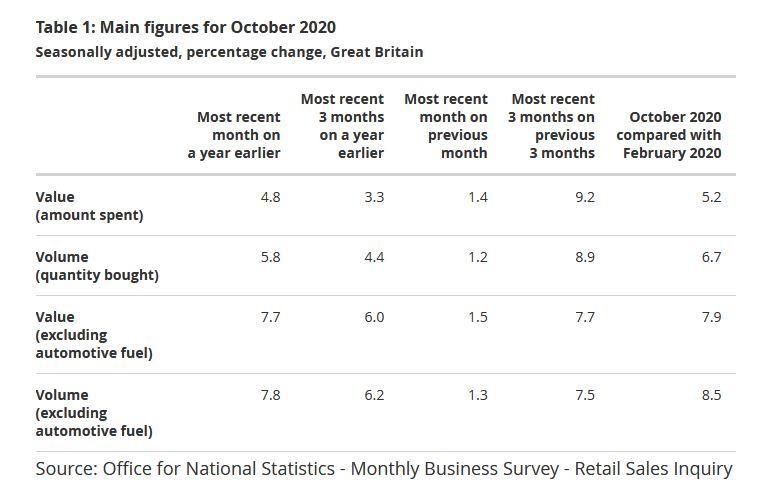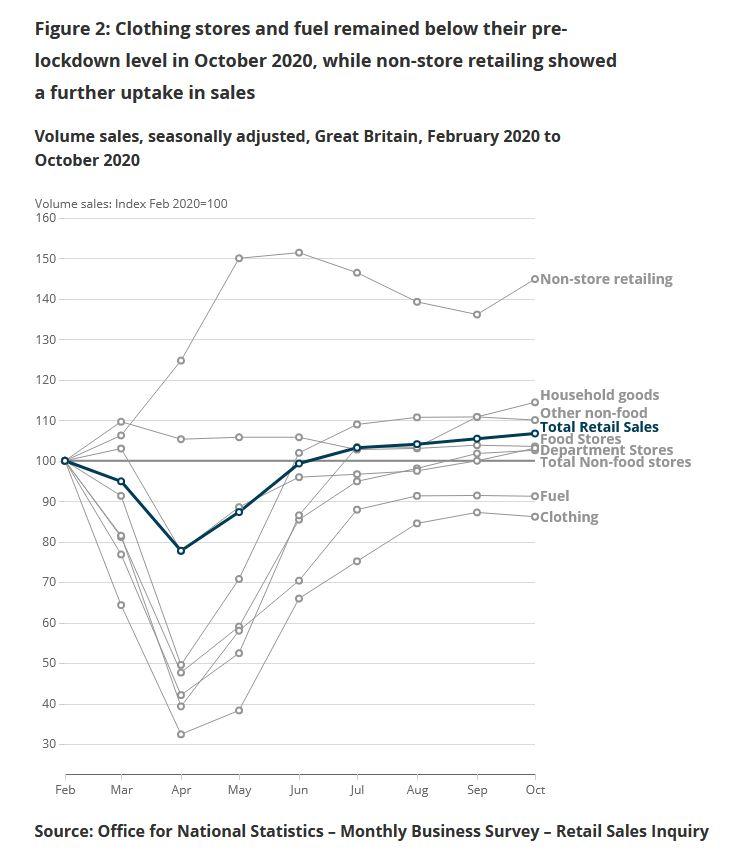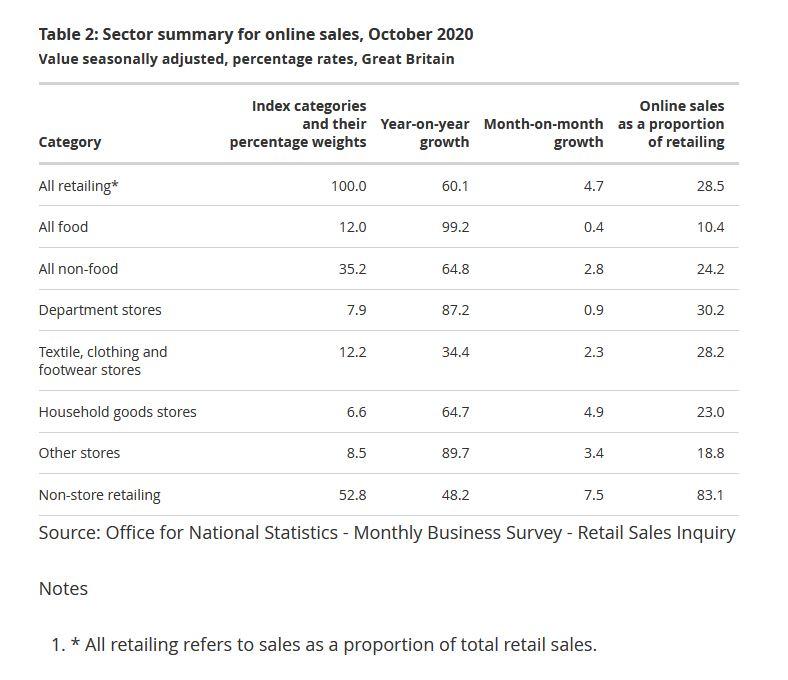2020 has almost come to a close, and it has not been a year anyone expected. Especially when it comes to ecommerce businesses and online retailers.
COVID has affected everyone in a multitude of ways, but the way it has impacted the economy and businesses everywhere is unprecedented. Not only that, but it also changed the way we interact with brands, shop online and shop in-store.
More businesses were forced to finally bite the bullet and launch ecommerce stores, or implement delivery or click and collect services. Some businesses may not survive 2020 or even 2021 – but some which have adapted to the new circumstances have been thrust into a new way of doing business and are actually doing well.
So what’s the latest statistics in regard to ecommerce and online retail, and what can we expect going forwards for UK consumers and shopping habits?
The ONS released October 2020 statistics on November 20th. While May 2020 still has the highest internet sales as a percentage of total retail sales ratio at 32.8%, but October saw an increase up to 28.1% from September’s 26.1%. This is still a big jump up from October 2019’s 19.1%.

The ONS found that October 2020 saw retail sales volume increase by 1.2% compared to September – which was a 6th consecutive month of growth.
October YOY growth rates in the volume of retail sales were 5.8%, with the general consensus being that more shoppers were getting Christmas shopping done early.

For total retail sales, all measures saw an increase in October. In 3 months up to October, value sales increased 9.2% and volume sales by 8.9%.
When it comes to the different sectors, clothing and fuel sectors are the only ones below pre-lockdown sales figures.

When it comes to online sales, there was growth in value sales across all sectors, compared to the previous year. The biggest increases come from online food sales increasing by 99.2%, department stores by 87.2%, and non-ford stores increasing by 89.7%.

While we are getting closer to normality, we are still very far from the pre-COVID life. The swift change in lifestyle in March and April certainly changed consumer behaviour for the rest of 2020, and likely beyond. For instance, the highest number of searches for “delivery” in the UK happened on 24th March 2020.
More people are relying on delivery services for day-to-day shopping as well as for Christmas gifts, In fact, 51% of consumers feel more reliant on having products delivered to their homes, according to Citizens Advice.
What is also quite a surprising statistic is that 96% of consumers also claimed to order products which require parcel delivery since March. However, 3/10 experienced shipping delays, which is the biggest cited issue that shoppers currently face in terms of shopping online.
Before the holiday period and Christmas shopping commences, 2/5 British people plan to shop on Black Friday and Cyber Monday – which we will no doubt see the statistics for soon. This correlates with more people wanting to get their Christmas shopping done early – purely because there will be no guaranteed possibility of browsing stores in the run-up to Christmas, and the fact that shopping in-store is no longer as fun as it was a year ago.
When it comes to offline retail, UK retail footfall dropped 31.5% in October – with November no doubt being worse due to the nationwide lockdown. No doubt December will increase once we are out of the national lockdown – however with many areas still remaining in Tier 3 and other consumers still cautious of going out and about, it’s likely footfall won’t exactly be high.
The latest statistics and news in the ecommerce space shows how consumers have changed over the course of the year. While there are fewer surprises now than when lockdown came into effect all those months ago, it shows that shopping habits have stuck, and specific businesses and/or industries have either done poorly due to the nature of the new normal, or because of their own practices.
With the possibility of a vaccine on the horizon, perhaps we will see further shifts. But one thing is for sure, and that is that ecommerce has never been more critical for businesses to survive in the near-term, and thrive in the long-term.
If you need guidance on getting started with ecommerce or taking your current ecommerce store to the next level, find out more about our custom ecommerce solutions and development services, or get in touch with the team for a chat about how we can help.











